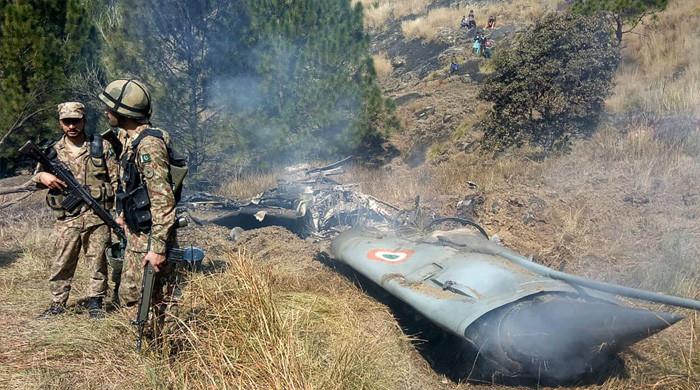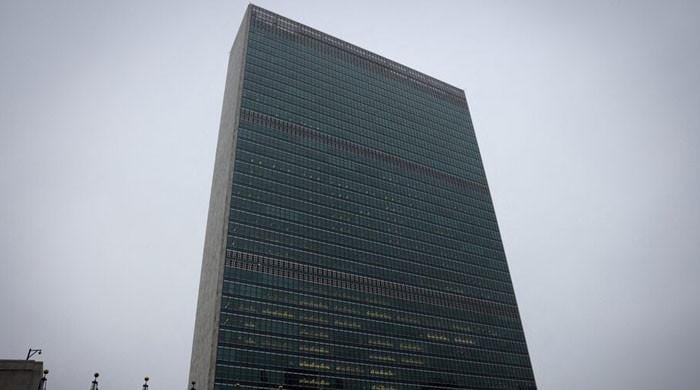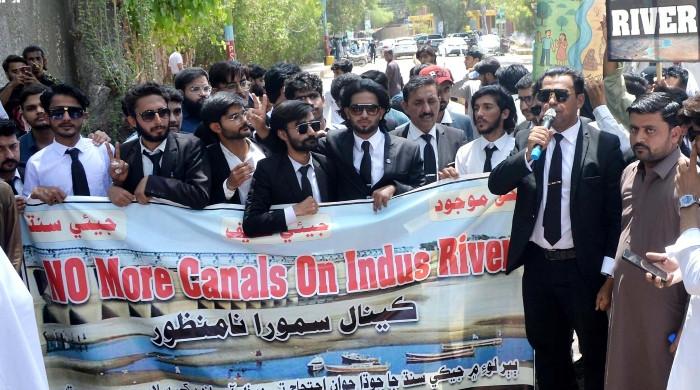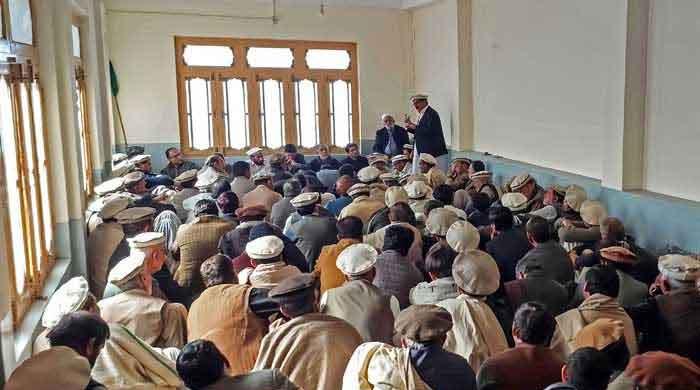Smog crisis: Karachi's air quality turns 'very unhealthy' for first time in month
Lahore retains its position as second-most polluted city in world, Karachi ranks third while New Delhi leads chart
November 30, 2024
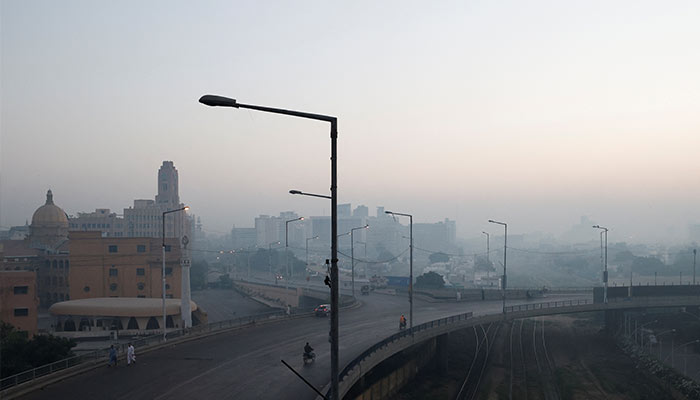
- Vehicles, factory emissions among causes of Karachi's air pollution.
- Karachi enters threshold deemed "very unhealthy" for humans: IQAir
- Port city's air quality index value soars to 212 for first time in month.
As smog persists in various parts of the country amid the ongoing pollution crisis, the air quality in Karachi deteriorated to "very unhealthy" for the first time in a month.
The port city's air quality index (AQI) value soared to 212 on Saturday morning, making it the most-polluted major city in the world on the Swiss group, IQAir's ranking.
The concentration of toxic PM2.5 pollutants in Karachi's atmosphere was 27.4 times higher than the World Health Organisation's (WHO) guidelines value, around 9:20am.
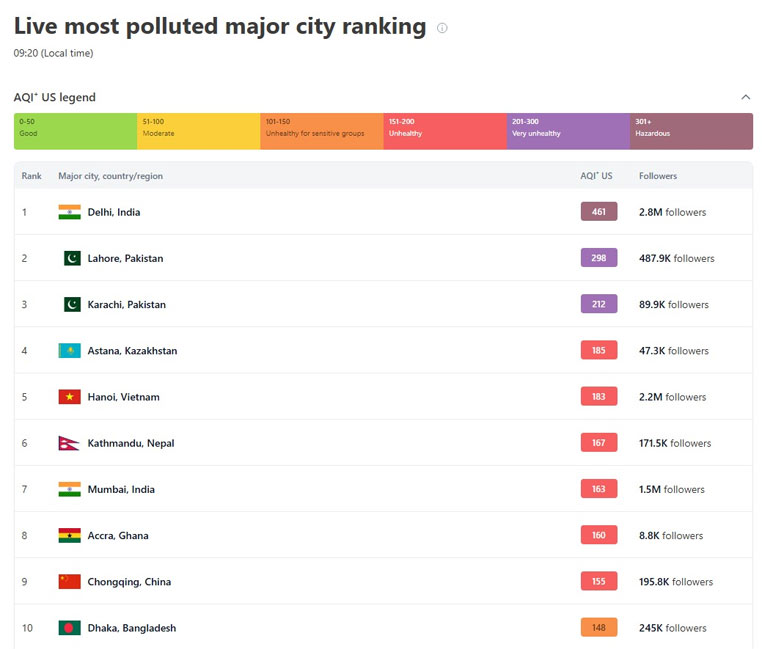
The air quality monitor's representation of the metropolis's air quality deterioration showed that it crossed the 200 mark — the threshold deemed "very unhealthy" for humans — though briefly, for the first time in a month.
Following a slight improvement, the AQI value in the city dropped to 194.
IQAir identifies the cause of Karachi's air pollution as the high number of vehicles operating in the city, the burning of refuse and garbage and factory emissions.
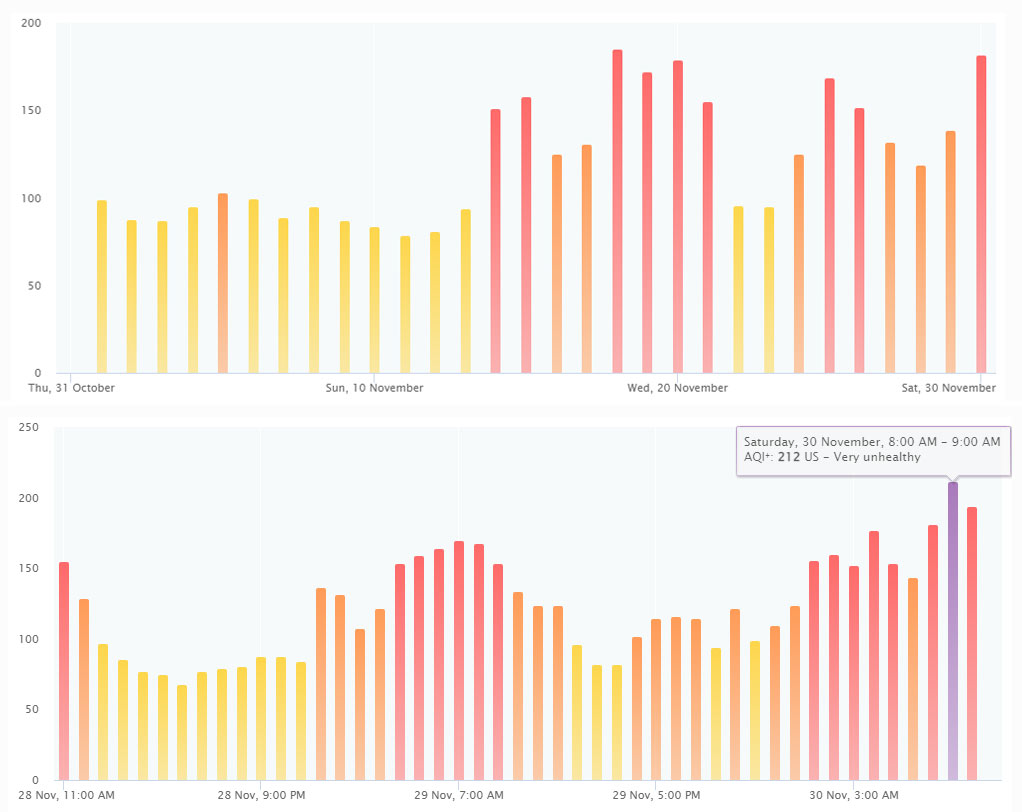
Meanwhile, Lahore retained its position as the second-most polluted city, with an AQI value of 298 — just two points shy of the "hazardous" category — while the Indian capital, New Delhi topped the global pollution ranking.
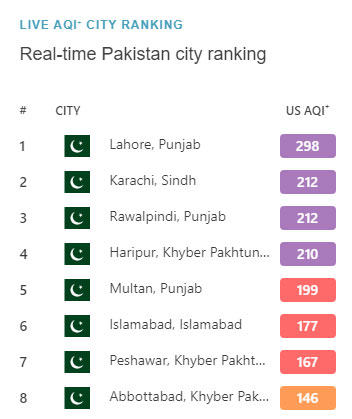
While Punjab remains in the grip of deadly smog, the provincial capital has frequently ranked among the most polluted cities worldwide for almost two months.
Despite fluctuations in the AQI over recent weeks — which even saw massive improvements from the unprecedented hike reported earlier this month — persistent smog continues to engulf the city, leaving residents grappling with hazardous air conditions and health concerns.
Every winter, a mix of low-grade fuel emissions from factories and vehicles, exacerbated by seasonal crop burn-off by farmers, blanket parts of Punjab, trapped by cooler temperatures and slow-moving winds.
Breathing toxic air has catastrophic health consequences, with the WHO warning that strokes, heart disease, lung cancer and respiratory diseases can be triggered by prolonged exposure.





